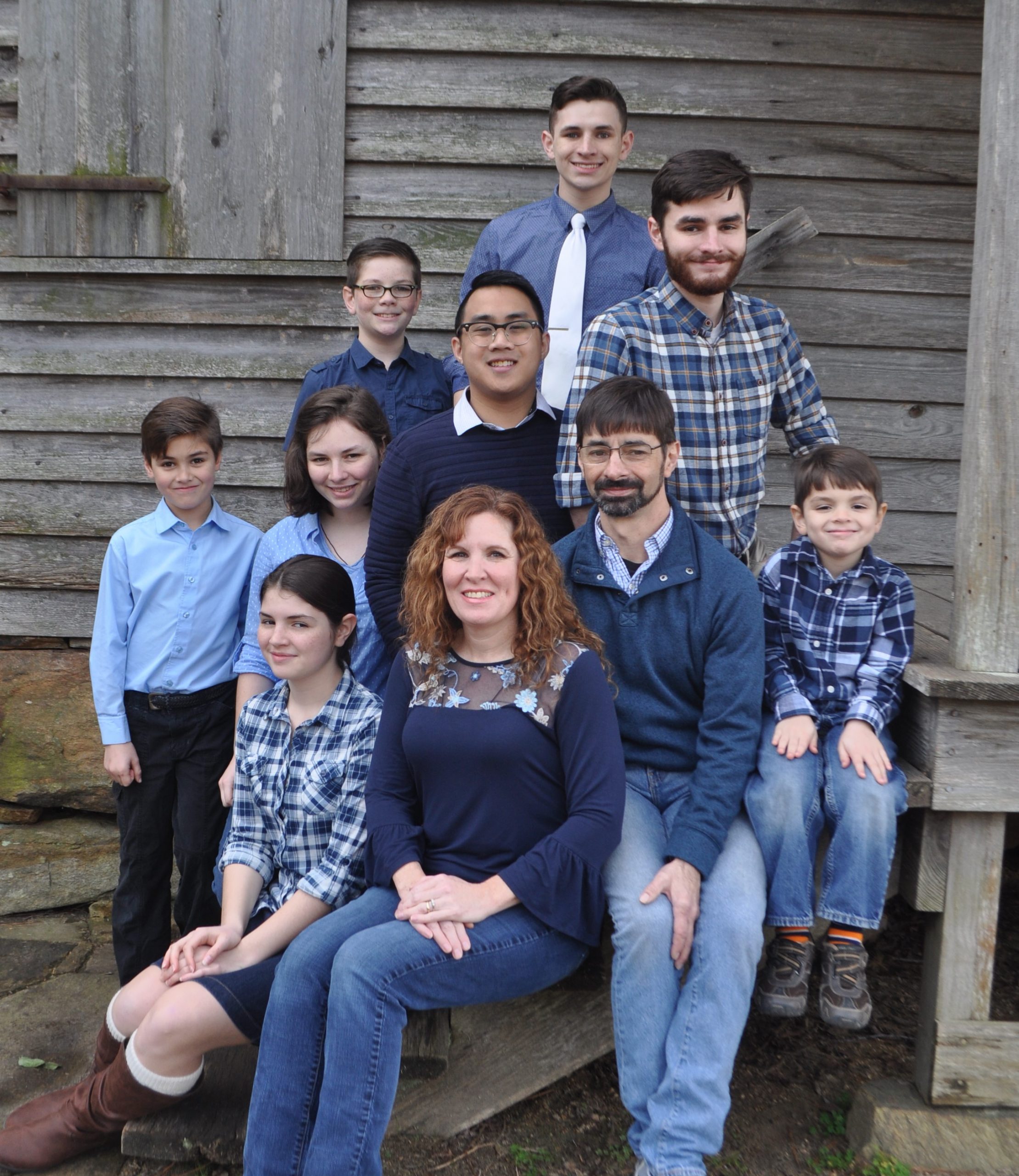Last Thursday, I found myself engaged in a parent-teacher conference of sorts. Since we’re home schoolers, parent-teacher conferences generally look like me getting pulled aside by a fellow parent so they can inform me of some disappointing situation my offspring has engaged in or facilitated.
This was one of those conversations.
I Read All of the Manuals
As a young parent, I read the child-rearing manuals, attended parenting talks, intently weighed advice and studied other successful families. My husband and I made it our priority to set good examples and instruct our children in the faith. We believed wholeheartedly that a solid formation would net good results.
Time and experience, however, turned that notion on its head. We’ve learned that sometimes, in spite of our best efforts, a child will run headlong in the opposite direction. Sometimes they make heartbreaking mistakes regardless of thorough training in the virtues.
Sometimes, in spite of our efforts, a child will run headlong in the opposite direction. Share on XThis reality is perhaps the most agonizing part of raising children. Because as parents we tend to have great expectations of and for our children. We want to hold fast to the conviction that diligent, thoughtful, loving parenting will result in productive, virtuous, obedient progeny.
My husband and I were at a pro-life benefit several years ago when this actuality came into focus for me. A video testimony was playing on the jumbo screen. The speaker was a middle-aged, Christian woman who’d volunteered countless hours at the pregnancy care center. She described how she’d helped to educate and care for numerous young, unwed mothers.
She’d poured herself into pro-life work and she thought she was making a real difference. When her teen-aged son unexpectedly got his young girlfriend pregnant, the speaker felt broadsided.
Before that moment, I’d witnessed my own young children making poor decisions in direct opposition to their father’s and my admonishment. Like the child who ended up with third degree burns after taking a risk we’d repeatedly warned against. Or the one who inflicted hurt on another family by breaking our rule against name calling. And even though we’ve filtered our internet, regulated our media exposure and talked frequently about the dangers of inappropriate content, the limits have still been breached.
Sitting there listening to that mother’s testimony, I recognized that we often think we have the ability to harness our children’s free will. That is to say, we think that our right formation of our sons and daughters will prevent them from exercising their wills in ways which are destructive or expressly forbidden.
The Prodigal Son’s Parents
Remembering that it was the same mother and father who brought up both the prodigal son and his dutiful brother, I imagine that perhaps those parents stood wringing their hands when that son demanded his inheritance and fled the cocoon of their family home.
Maybe they felt like failures when the prodigal son used their hard-earned resources to finance his life of partying. Maybe they asked, “Where did we go wrong?”
Indeed, that woman in the video never dreamed that she’d find herself seeking counsel at her own clinic. However, her son’s choice humbled her, taking her from adviser to one needing advice. And that temporary role change better equipped her to empathize with her future clients. Also, she was blessed with a grandchild because her son had learned from her the value of all human life.
Whatever the reason was for the prodigal son’s revolt, home is where he ran to once he’d lost it all. Though he wasn’t expecting the welcome he got, he knew that home was still the place he could go to repent and to heal. For all of the anguish his father suffered during his absence, the prodigal son’s father experienced overwhelming joy at the sight of his return.
When Our Efforts Aren’t Enough
In the course of raising our own brood, my husband and I have shed tears over the fact that all of our best efforts have not always been enough to counter the temptations of a secular world.
Just like the parents of Cain and Abel, the prodigal son and his dutiful brother, and Joseph and his plotting siblings, we can only do our best to form our children well, to love them unconditionally and to pray for them without ceasing, but at the end of the day they are individuals.
Though we’d prefer obedience over rebellion, we’ve come to the conclusion that growing up sometimes requires hard lessons and painful trials. Children are not automatons into which we can program our expectations.
Children are not automatons into which we can program our expectations. Share on XWhile we may think we’ve harnessed their juvenile will, before long we need to release the reins and not every son/daughter is going to stay on course.
Throw Them To The Wolves
What then is a parent to do? Throw up our hands in despair? Throw caution to the wind and allow children to raise themselves? Hand them over to the village? Or maybe find a nice wolf den to deposit them in?
NO. As parents, we’re obliged to mold the hearts and minds of our offspring. We must cultivate their roots in a stable foundation, so that even if they wander the seeds of truth will remain embedded in their conscience; capable of blossoming in due time.
I take no pleasure in learning some fault or indiscretion a child of mine has committed; however, I do take comfort in knowing that my children are free to exercise their wills. They are not constrained by me or my expectations. Because as C. S. Lewis so wisely pointed out,
“…free will, though it makes evil possible, is also the only thing that makes possible any love or goodness or joy worth having.”

